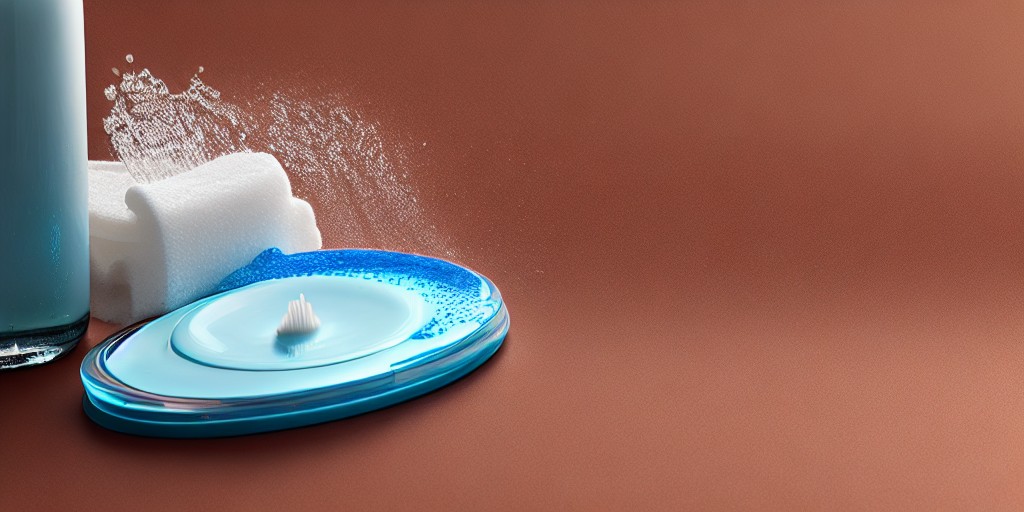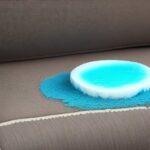Chlorine bleach, commonly known as Clorox, is a powerful disinfectant used to clean surfaces and clothes. It is a common household item, but many people wonder if it can be harmful if it comes in contact with their skin. The question arises: Can Clorox be absorbed through the skin? In this post, I will explore the topic in-depth and provide answers to some commonly asked questions.
What is Clorox?
Clorox is a brand name for a household bleach containing sodium hypochlorite. It is a strong oxidizing agent that can break down organic matter, including bacteria, viruses, and fungi. Clorox is commonly used as a disinfectant and a stain remover.
Can Clorox be absorbed through the skin?
Yes, Clorox can be absorbed through the skin. Sodium hypochlorite can penetrate the skin and enter the bloodstream, where it can cause damage to red blood cells and other tissues. The severity of the damage depends on the concentration of the bleach, the duration of exposure, and the thickness of the skin.
How does Clorox affect the skin?
Clorox can cause irritation, redness, and burns on the skin. It can also cause itching and swelling. Prolonged exposure to Clorox can cause dermatitis, a skin condition characterized by redness, itching, and scaling. In severe cases, it can cause chemical burns.
What should you do if Clorox gets on your skin?
If Clorox gets on your skin, you should immediately rinse it off with plenty of water. If the bleach has caused any irritation or redness, you can apply a mild steroid cream or take an over-the-counter antihistamine to reduce the symptoms. If the burn is severe, you should seek medical attention.
Can Clorox be absorbed through cuts or open wounds?
Yes, Clorox can be absorbed through cuts or open wounds. The skin is the body’s first line of defense against harmful substances, but if it is broken, the bleach can enter the bloodstream more easily. Therefore, it is essential to be extra cautious when handling bleach if you have any cuts or open wounds.
Can Clorox be absorbed through the eyes?
Yes, Clorox can be absorbed through the eyes. If bleach gets in your eyes, you should immediately flush them with plenty of water and seek medical attention. If left untreated, it can cause serious damage to the eyes, including blindness.
How can you protect yourself from Clorox exposure?
To protect yourself from Clorox exposure, you should always wear gloves and protective clothing when handling bleach. You should also work in a well-ventilated area to avoid inhaling the fumes. If you have any cuts or open wounds, cover them with a waterproof bandage. Avoid using bleach on your skin or hair.
What are the long-term effects of Clorox exposure?
Long-term exposure to Clorox can cause respiratory problems, including asthma and bronchitis. It can also damage the liver and kidneys and increase the risk of cancer. Therefore, it is essential to use bleach only as directed and avoid overexposure.
Conclusion
In conclusion, Clorox can be absorbed through the skin, and prolonged exposure can cause irritation, burns, and other health problems. It is essential to be cautious when handling bleach and take appropriate safety measures to avoid exposure. If you experience any symptoms of Clorox exposure, seek medical attention immediately.
FAQs on Can Clorox Be Absorbed Through the Skin?
Is Clorox safe for skin?
Ans: No, Clorox is not safe for skin. It can cause irritation, burns, and other skin problems.
What should I do if I accidentally swallow Clorox?
Ans: If you accidentally swallow Clorox, you should immediately drink plenty of water and seek medical attention. Do not induce vomiting unless directed by a medical professional.
Can Clorox cause cancer?
Ans: Prolonged exposure to Clorox can increase the risk of cancer. Therefore, it is essential to use bleach only as directed and avoid overexposure.
Can I use Clorox to whiten my teeth?
Ans: No, you should not use Clorox to whiten your teeth. Bleach is too harsh for the delicate tissues in your mouth and can cause serious harm.
How can I dispose of Clorox safely?
Ans: You should never pour Clorox down the drain or into the trash. Instead, you should dilute it with plenty of water and then pour it down the toilet. Alternatively, you can contact your local hazardous waste disposal facility for guidance on safe disposal.
In summary, while Clorox is an effective cleaning agent, it can be harmful if it comes into contact with the skin or is ingested. It is crucial to handle bleach with care, wear protective gear, and avoid overexposure. If you experience any adverse reactions to Clorox, seek medical attention immediately.




